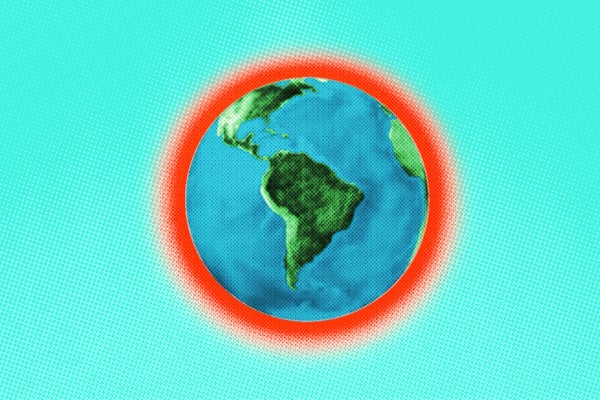Climate Change Is Already Happening (Right Here, Right Now)
 Illustrated by Ly Ngo.
Illustrated by Ly Ngo.You know how, on a particularly hot or cold day, people like to mutter things like "Thanks a lot, global warming," while they profusely sweat or uncontrollably shiver? Well, according to new findings from the National Climate Change Assessment, that's not just a dark joke. As anyone following climate-change news of late is acutely aware, it's just reality.
As The New York Times reports, scientists noted significant changes in weather patterns and their many consequences, including heat waves, wildfires, floods, and droughts across the United States. All this, it seems, is the result of a two-degrees-farenheit increase in average temperatures in most of the world over the last 100 years.
AdvertisementADVERTISEMENT
Here's a direct quote from the report that paints a pretty definitive picture: "Summers are longer and hotter, and extended periods of unusual heat last longer than any living American has ever experienced. Winters are generally shorter and warmer. Rain comes in heavier downpours. People are seeing changes in the length and severity of seasonal allergies, the plant varieties that thrive in their gardens, and the kinds of birds they see in any particular month in their neighborhoods."
Now, some people might welcome a longer summer, and not just avid sunbathers — that means an extended growing season and more time for shipping goods across bodies of water that freeze over in winter. But, the report states that "by mid-century and beyond, these impacts [of climate change in general on agriculture] will be increasingly negative on most crops and livestock." Weeds and pests are liable to increase, along with soil erosion and degradation from too much rainfall. In addition to that, the infrastructure that Americans rely on — particularly in the northeast and on the southern coasts of the United States — is more and more at risk of either serious damage or total destruction.
Then, of course, there are the next steps we need to take to stop the problem. The report breaks it down into five basic sections: decision support, mitigation, adaptation, research needs, and sustained assessment. That basically means moving forward with the goals and needs of all "stakeholder" parties taken into account, lowering emissions and switching to alternative energy on the double, acknowledging the "new world order," and responding to it with both legislation and technology, and finally, keeping a close and continued watch on the data and its implications.
Yes, that's a mouthful, but it's also one of the most interesting parts of this report, and definitely worth checking out — especially in an election year when. Given the news of late, the realities of and reactions to climate change are bound to be a hot-button topic. Read the Times' in-depth summary here, or view the full report and highlights here.
AdvertisementADVERTISEMENT






